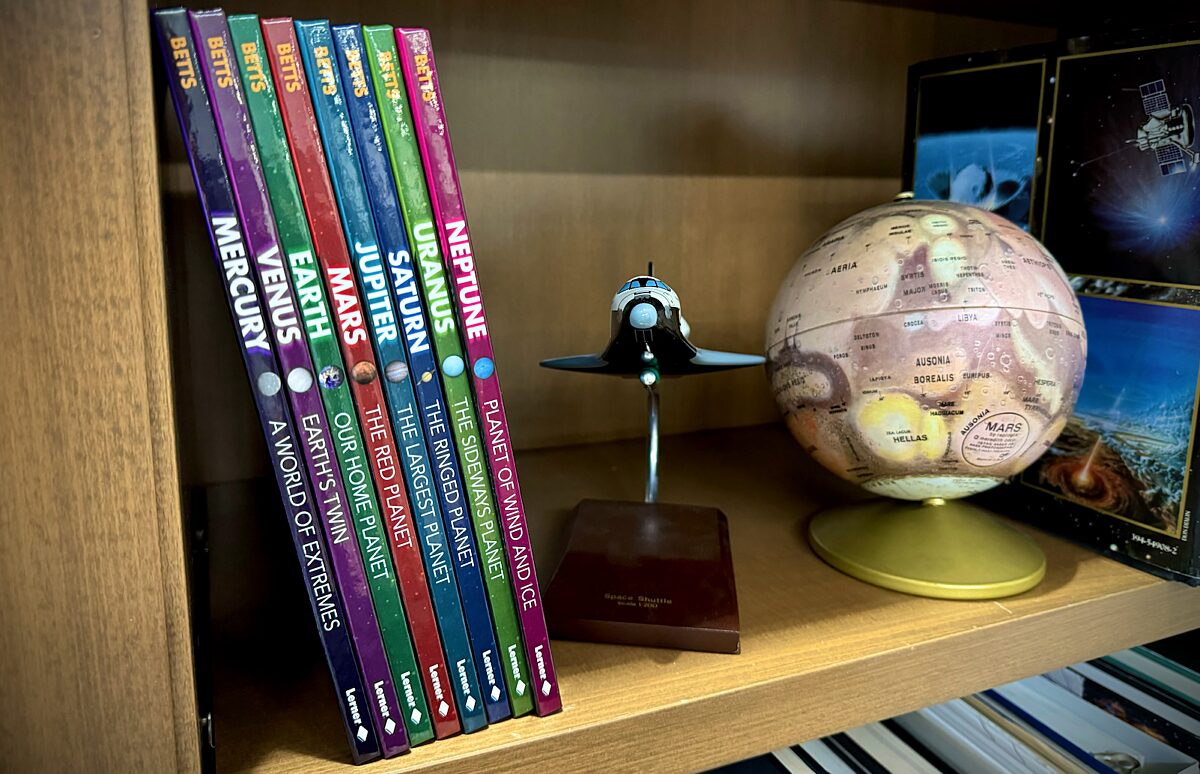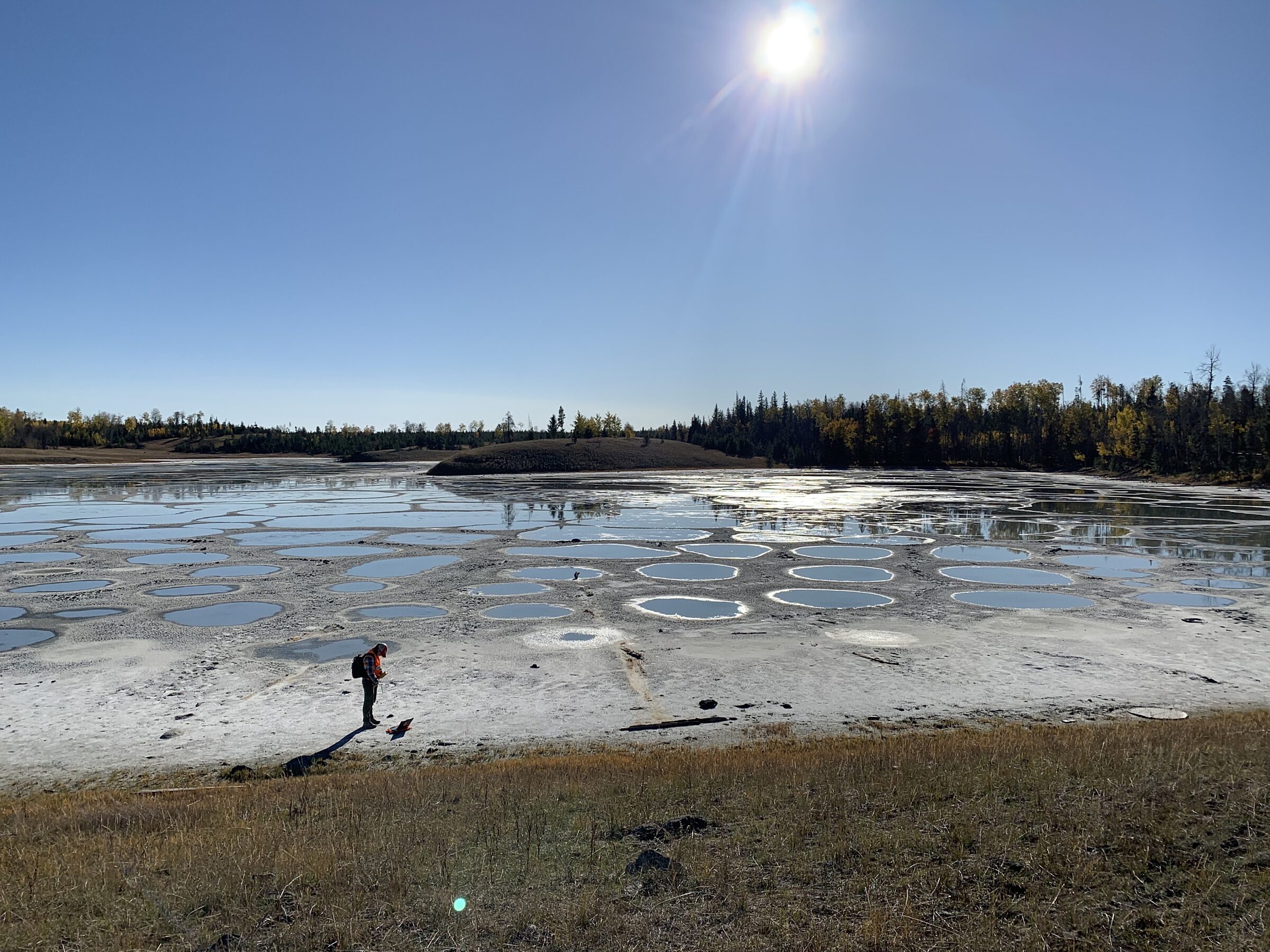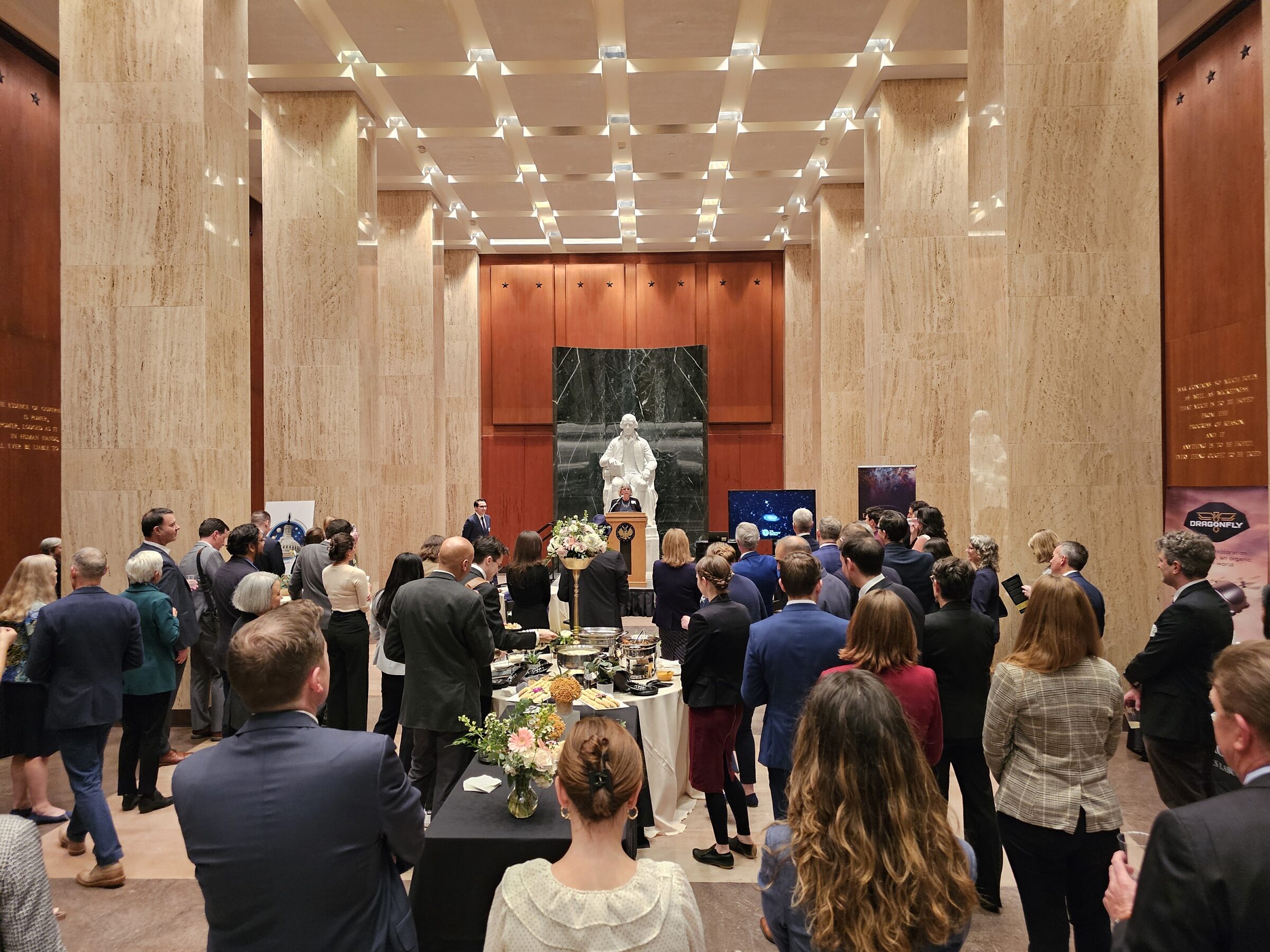2024 Impact Report
In 2024, The Planetary Society championed the importance of space science and exploration through advocacy, outreach, science, and global collaboration. The following impact report highlights the key moments and achievements that defined our year.
Not a member? Help support a bright future for the scientific exploration of space and join today! It's only $4/month.
Space Policy and Advocacy
The Planetary Caucus is back
After a two-year hiatus, the Congressional Planetary Science Caucus was rechartered in the 118th Congress thanks to Reps. Don Bacon and Judy Chu. This bipartisan effort provides a platform for congressional support of space science and exploration. The Planetary Society played a pivotal role, offering expertise and outreach to reestablish the caucus. With support from our members and donors, we’re committed to ensuring this caucus helps bolster investment and policy for space science in the U.S.
Policy principles for Mars Sample Return
In February, The Planetary Society released policy principles to guide NASA’s Mars Sample Return program amid cost challenges. With an emphasis on returning the full sample suite, pursuing the mission without delay, and balancing its budget with other science priorities, these principles aimed to safeguard the mission’s science goals while maintaining the broader objectives of NASA’s exploration strategy.
The Planetary Society sticks up for VIPER
When NASA announced the cancellation of the VIPER mission, The Planetary Society led efforts to rally the science community. We circulated a letter signed by 1,000 scientists to Congress, highlighting VIPER’s importance for lunar exploration and water mapping. We continue to advocate for NASA to prioritize this mission’s continuation as essential for advancing the Artemis program’s scientific goals.
Advocacy actions in support of NASA’s budget
In early 2024, budget issues led to significant layoffs at NASA’s Jet Propulsion Laboratory. The Planetary Society quickly mobilized U.S. members to write to Congress, urging support for NASA’s science missions. Over 1,800 members from every state participated, reinforcing the importance of planetary exploration. The final budget preserved most programs, though with some funding reductions, demonstrating the importance of our collective voice in advocating for space policy.

Education and Outreach
New children’s book series
In partnership with Lerner Publishing, Planetary Society Chief Scientist Bruce Betts authored an eight-book series, “Exploring Our Solar System,” for children aged 7 to 10. These books make learning about space fun and accessible, inspiring the next generation. Members can help by requesting these books for local schools and libraries, purchasing them for young space enthusiasts, or leaving reviews online.
New online courses: The Search for Life, Eclipses, and Stargazing 101
This year, we expanded our educational offerings with a series of online courses in The Planetary Society’s member community. Members can explore the seven-part course Search for Life course, delve into eclipses to understand these awe-inspiring celestial events, and look forward to Stargazing 101, set to launch in November, which will teach how to explore the night sky from your own home. These courses are designed to inspire curiosity and deepen knowledge, empowering members to learn more about space and the science behind it.
Supporting the space leaders of tomorrow
The Planetary Society remains dedicated to nurturing the next generation of space explorers. We participated in the Zed Factor Fellowship, welcoming our fifth fellow, Elizabeth Koenck, who worked on advocacy projects. Additionally, we supported 20 international students’ attendance at the Astrobiology Graduate Conference, fostering learning, collaboration, and community-building in space science. This commitment helps build a diverse and skilled future space workforce.

Science and Technology
Studying salty lakes as planetary analogs
This year Dr. Jacob Buffo’s project, funded by a Planetary Society STEP Grant, began studying Earth’s salty lakes as analogs for extraterrestrial environments. His team’s fieldwork in British Columbia’s Cariboo Plateau involved multidisciplinary collaboration and advanced data collection using drones. These studies could inform future planetary exploration strategies and are possible thanks to our members’ support.
New insights into asteroid properties
The Asteroid Thermal Inertia Analyzer (ASTERIA) project, funded by a Planetary Society STEP Grant, is an innovative tool to measure how well asteroids retain heat, giving insight into their composition and structure. This year, the tool was tested on 10 well-known asteroids, including Bennu and Didymos, and validated as a promising new method of independently confirming findings from other techniques. The project represents an important step forward in the global effort to understand asteroids that could someday pose a threat to our planet.
Are We Alone? SETI project expands
UCLA’s “Are We Alone?” project, supported by a Planetary Society STEP Grant, engages citizen scientists to analyze data from the Green Bank Telescope in the search for technosignatures. This year, the project expanded its reach by adding new language translations in Bengali, French, Portuguese, and Italian to further broaden the engagement of citizen scientists worldwide. They’ve also continued to developing AI tools to accelerate data analysis, enhancing public involvement and scientific output.
LightSail continues to advance Solar Sailing
Five years after its launch, The Planetary Society’s LightSail 2 continues to contribute to solar sailing research. NASA’s ACS3 mission, which launched on April 23, 2024 and successfully deployed its sails in September, was informed by LightSail 2’s results, in addition to Chief Scientist Bruce Betts supporting the mission’s review process. This work showcases the long-term value of innovative, member-supported projects.

Global Collaboration
Search for Life symposium at Planetary Society headquarters
In February, we hosted a two-day symposium that brought together global experts in astrobiology, planetary science, and SETI. The event facilitated cross-disciplinary discussions and provided insight to guide The Planetary Society’s future efforts in supporting the search for life.
Celebrating the April 2024 Eclipse
Our Eclipse-O-Rama event in Fredericksburg, Texas, brought over 800 members together for a memorable total solar eclipse experience. The two-day festival featured educational talks, music, and activities, creating a space for shared enthusiasm and lasting memories for our space community.
Honoring visionary philanthropy with the C. Wallace Hooser award
The Planetary Society proudly introduced the C. Wallace Hooser Award for Visionary Philanthropy this year, named in memory of longtime board member Wally Hooser. Wally believed deeply in investing in humanity’s future through space exploration and planetary defense. The inaugural award was presented to Mark Gelfand, a dedicated supporter of The Planetary Society since 1998.


 Explore Worlds
Explore Worlds Find Life
Find Life Defend Earth
Defend Earth


